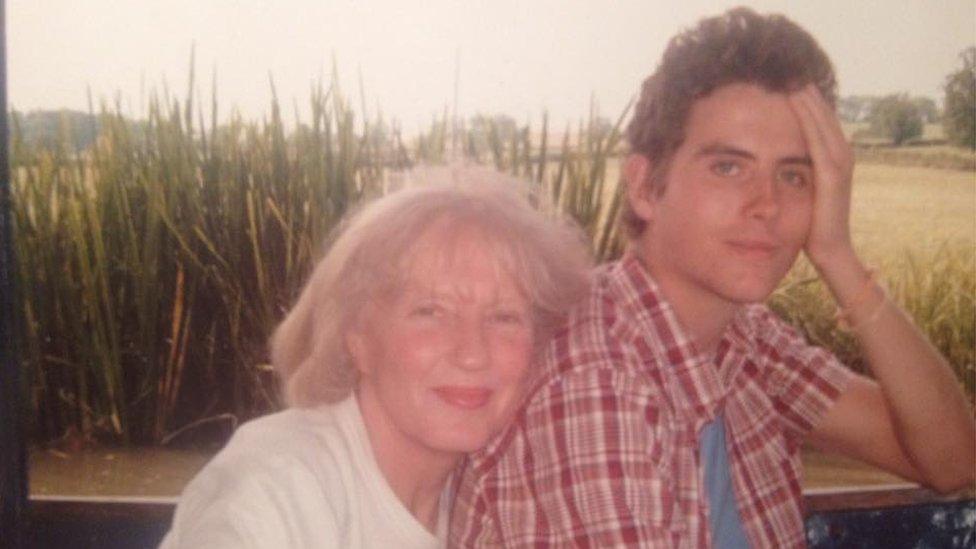Memorial benches: 'A quiet reminder of people gone, but not forgotten'
- Published
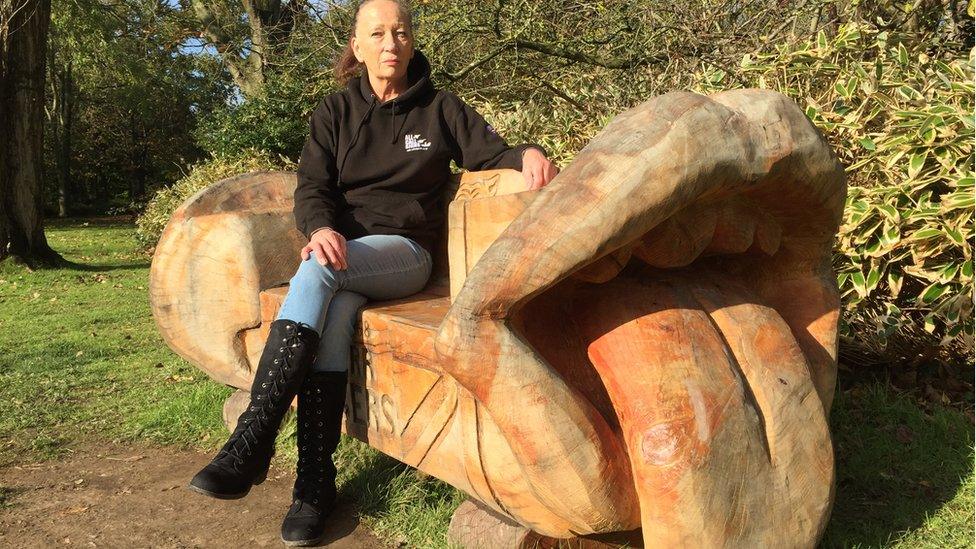
Viv Johnston says she regularly sits at the bench to remember her son
Veterans, friends and family come to sit on a bench in Bognor Regis to pause, reflect and remember serviceman Danny Johnston.
A simple plaque tells of his premature death, at the age of just 35.
The rest of the Hotham Park seat is far from simple. Unique carvings remind them of Danny's service - for the Princess of Wales's Royal Regiment and the Special Reconnaissance Regiment - and of his love for the music of The Rolling Stones and The Who.
"We get comfort from it being here. Knowing he is not forgotten means so much to me," says his grieving mum Viv Johnston.
"I hope this bench will be here for a long time after I am, and I hope that people will remember Danny, because he was a truly marvellous person."

Danny Johnston served in the British Army for more than a decade
Its legacy is important to Viv. It is a place for others who, like her first-born son, struggle to return to civilian life after serving for years in some of the most dangerous parts of the world. Danny had signed up at the age of 16 to be part of the regiment, nicknamed "The Tigers", and later as part of the special forces in Iraq and Afghanistan. He took his own life in May 2018.
"Local veterans come here when they are feeling down. It is a peaceful place to sit and think," she says, to the soundtrack of birdsong from the trees behind her.
The bench is very unusual. Not many park benches will feature the lead characters of Danny's favourite film, The Blues Brothers. The story of its commission, however, is typical of the many thousands of memorial benches across the UK.
His brother-in-law Wesley had encouraged Danny's friends to club together for a lasting memorial of his life. The bench was revealed to Viv on the anniversary of his death.

Danny's army number has been carved into the bench
She hopes it stays in Hotham Park for many years, pointing out there is no option to take it home when you live in a first-floor flat with no garden.
For other grieving families, the installation of a dedicated bench may only prove to be a temporary monument. Individual councils set their own rules for benches and other memorials to loved ones. Many only guarantee their position and maintenance for 10 years after which they may be taken away, replaced, or owners asked to collect them.
Some local authorities have strict guidelines on what can and cannot be written on commemoration plaques. Council websites usually have a page explaining their specific approach.
Fundraising websites are awash with appeals for money to erect benches in a loved one's memory, but the cost can sometimes be prohibitive.
At the top end, at Birmingham's Botanical Gardens, a bench for 10 years with a plaque displaying up to 10 words costs £2,500. Some councils with stretched budgets and high demand for this service have doubled prices, or closed applications for popular spots.
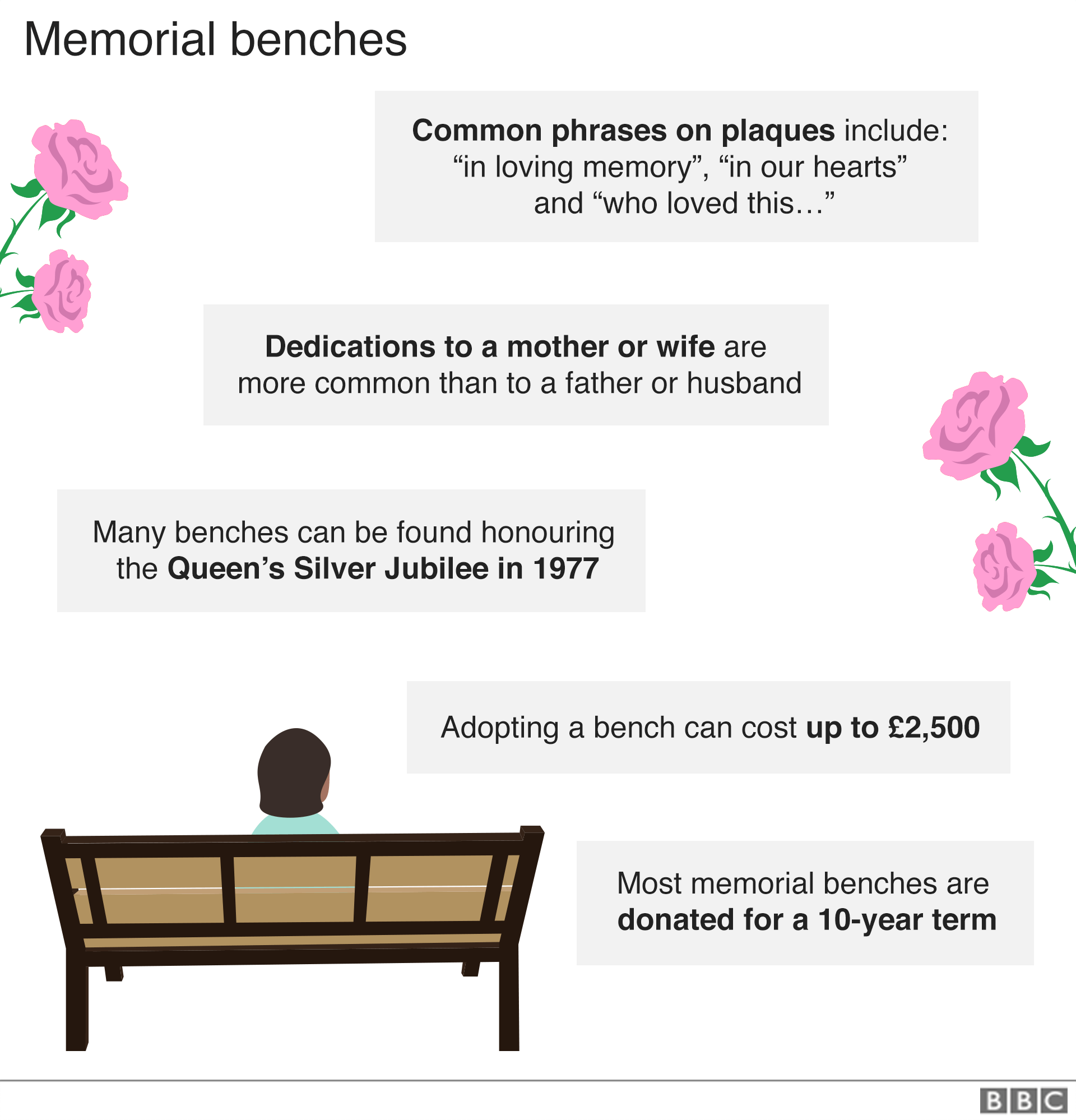
These benches have critics, particularly in popular coastal sites. The head of the National Trust in Jersey sparked a furious debate, external in 2018 when he said it was crucial that beauty spots did not turn into graveyards with the proliferation of dedicated seats.
They also have enthusiastic supporters, using the place to sit and talk to tackle loneliness or as a way to highlight a particular charity or cause.
A few, like open technology enthusiasts Terence and Liz Eden, are preserving their legacy through websites and blogs. The couple designed and built Open Benches, external, a mapping site that allows people to upload pictures of benches in their area. To date, more than 15,000 have been added to the site, the vast majority of which are in the UK.
The plaques they chart are often sad, deeply personal, sometimes uplifting and occasionally funny.

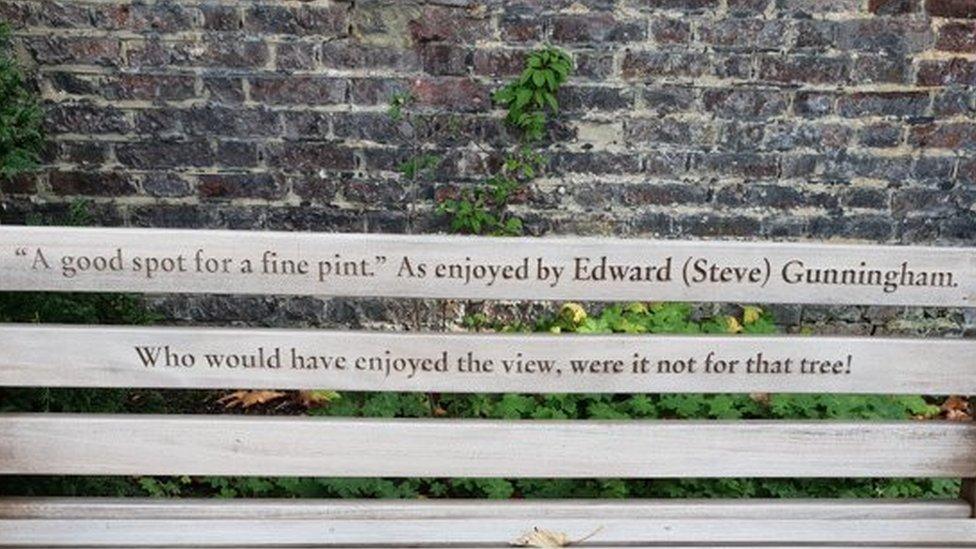
"There are blue plaques to commemorate the famous and influential figures of the past. For everyone else, there are memorial benches. A quiet reminder of the people gone, but not forgotten," the website says.
Terence says memorial benches are a "low-cost, low-effort way to learn about our community", but admits his favourite is dedicated to a cat. One visitor described delving into the database as "like [mobile treasure hunt-style game] Pokemon but for benches".
It has revealed that plaques are more likely to be dedicated to wives and mothers than husbands and fathers. The common phrases are: "in loving memory", "in our hearts" and "who loved this…[place/view etc]".
The view, and special nature of the site, are the inspiration for many families who chose to remember a loved one in this way.
Carol Kubicki, a 59-year-old travel writer, has spent much of the last decade, since retiring from the NHS, cataloguing some of the most spectacular of these views and telling the stories of those commemorated in her Memorial Bench Stories blog, external.
"My friends thought I was nuts when I suggested it," she says. "They laughed and said I now had far too much time on my hands."
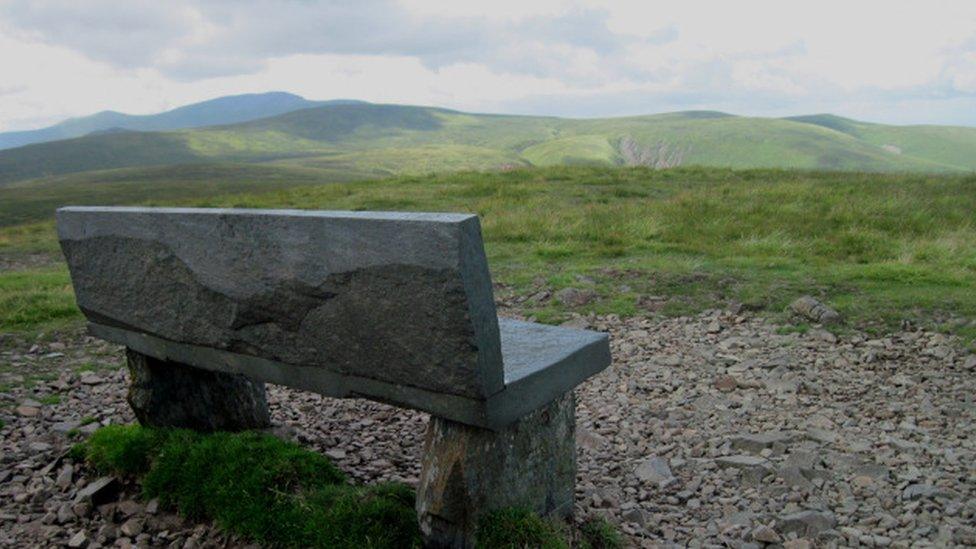
A bench dedicated to Mick Lewis, 16, on High Pike
(A selection of more of the pictures she has taken are shown at the end of this article)
There are, she says, far too many to gather in a comprehensive list. Some stories are also difficult to research, she says, but many of her favourites are those in the most spectacular sites. There are surprises too, she says, having discovered benches dedicated to actress Dame Thora Hird, and rock band Black Sabbath among others.
Ultimately, her aim is to reflect the respect that people have when they sit on a bench, read the commemoration on the plaque, and consider why it is a special place for a particular family.
The UK's biggest bereavement charity says benches can anchor families to memories of special times they spent with a loved one during their lives, rather than only recall an often traumatic end.
"When someone dies, your relationship with them does not disappear. A traumatic death, something sudden or at the end of a long drawn out illness, can be at the forefront of your mind. A bench can help someone remember the good and joyous times alongside what might have been a very difficult ending," says Andy Langford, chief operating officer for Cruse Bereavement Care.
"One lady told us a bench sometimes gave her comfort - a sense of peace and closeness to her husband, but sometimes she would go there and be able to have a cry and remember how much she misses him. Both are healthy parts of the grieving process."
So, for anyone sitting at a beauty spot or a local park, a memorial bench offers the chance to contemplate the lives lived by those commemorated on the plaque behind us and what lies ahead for those who remain.

Here are some more pictures of benches from Carol Kubicki's travels:
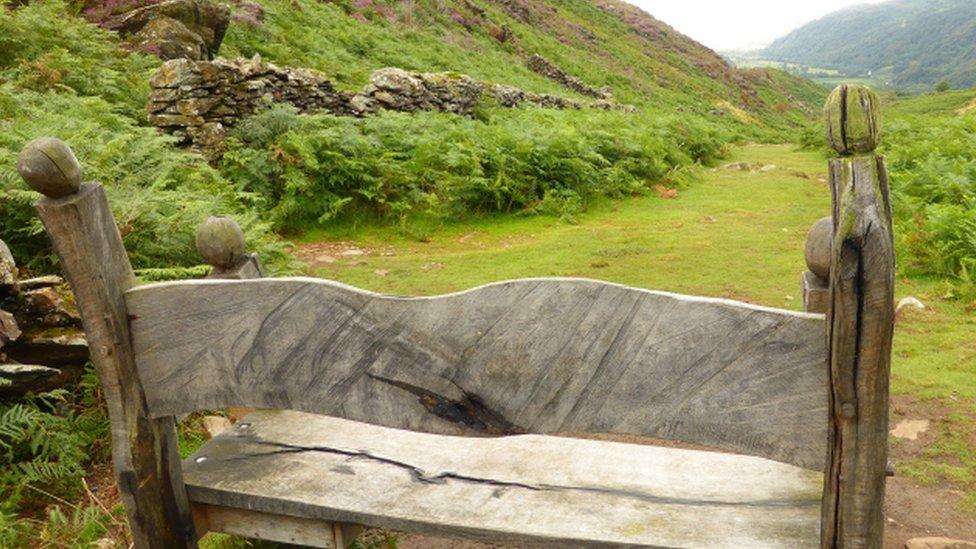
Bench commemorating "AJM" at Cwm Bychan near Beddgelert

Dedicated to Dr Eugenie Hilda Dorothy Cheesmond at Top O Slate above Haslingden
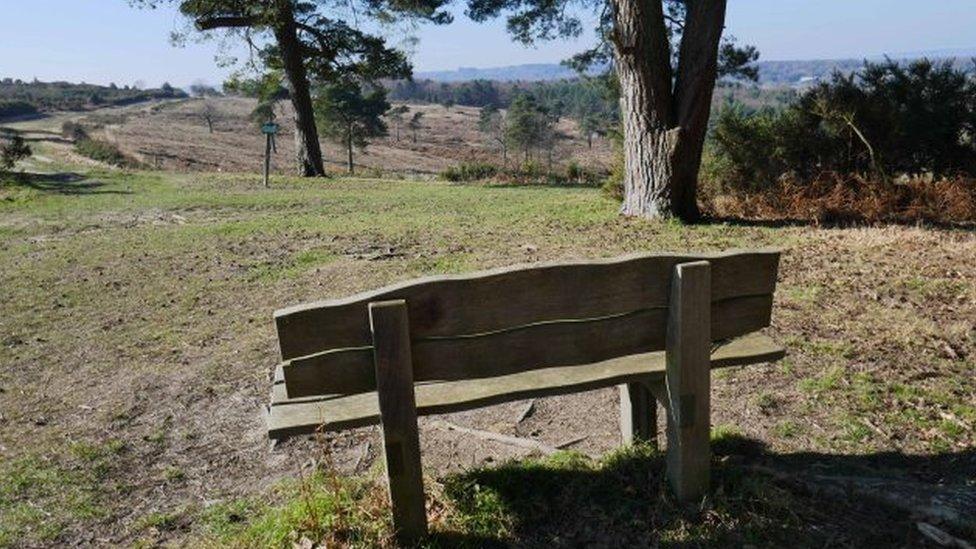
Memorial bench at Ashdown Forest in memory of Luke Power, 20, from Turners Hill, and Tom Dawes, 19, from Forest Row
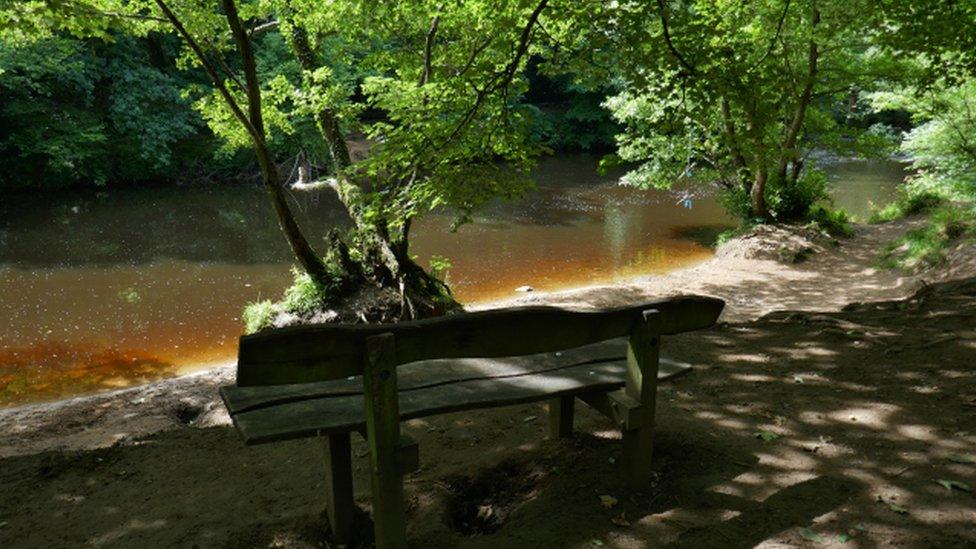
Dame Thora Hird dedicated bench at Knaresborough
... and some pithy plaques from the Memorial Benches website:
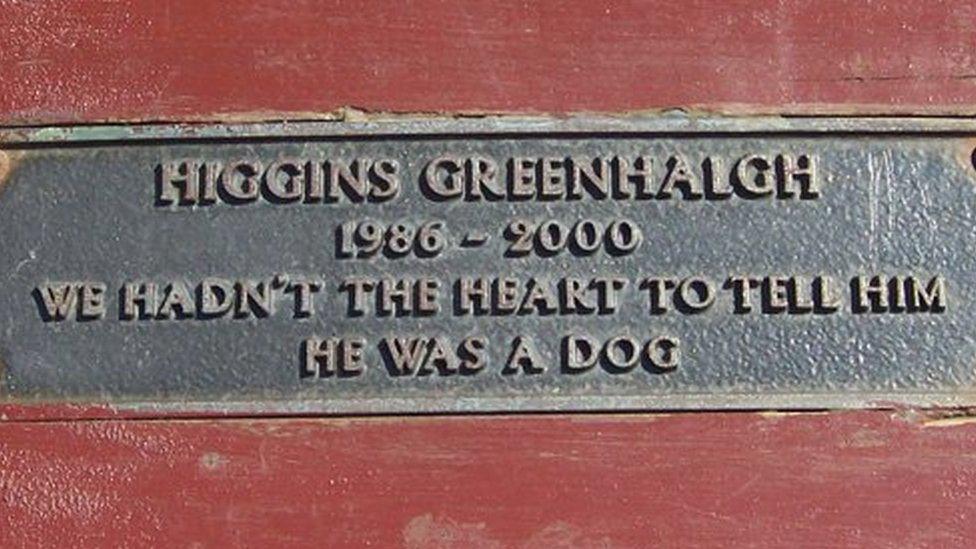
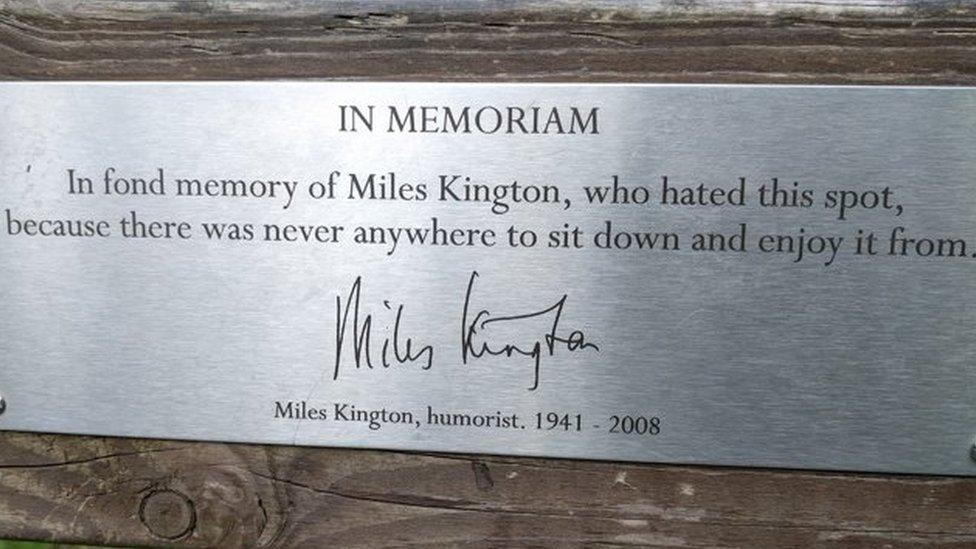

All images subject to copyright
- Published30 September 2018

- Published4 September 2019
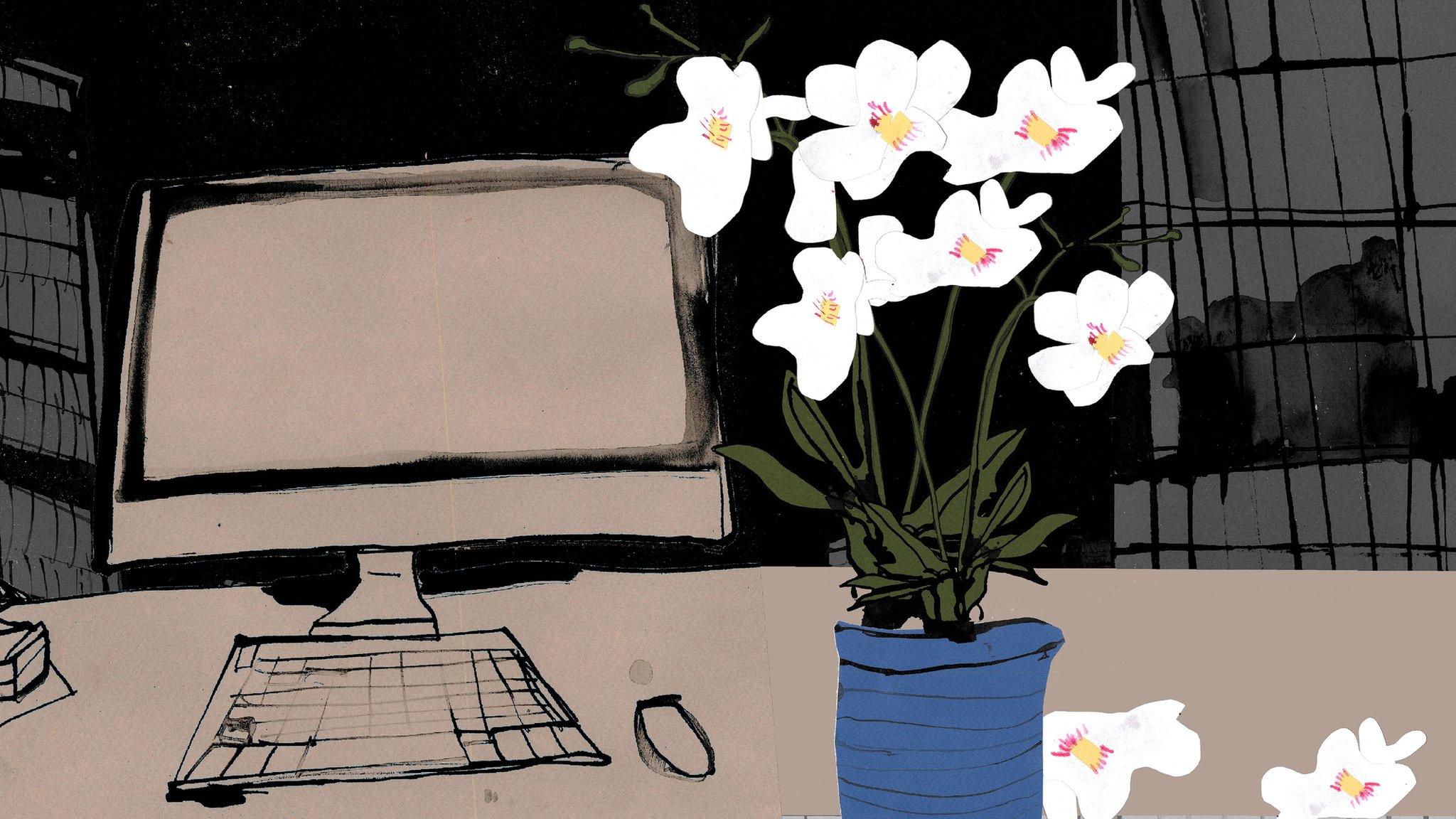
- Published28 November 2019

- Published20 October 2019
